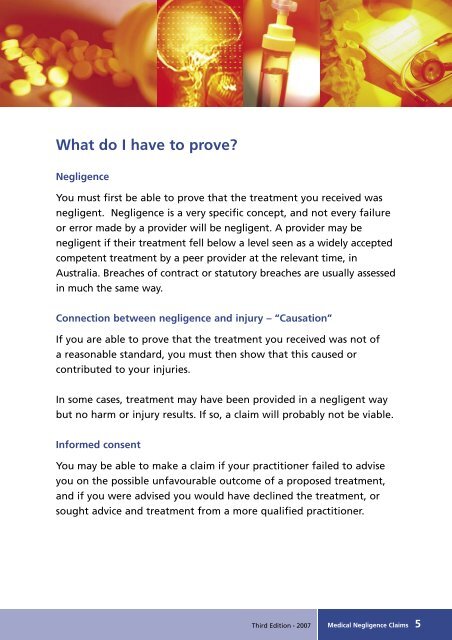Medical Negligence Claims - Slater & Gordon
Medical Negligence Claims - Slater & Gordon
Medical Negligence Claims - Slater & Gordon
Create successful ePaper yourself
Turn your PDF publications into a flip-book with our unique Google optimized e-Paper software.
What do I have to prove?<br />
<strong>Negligence</strong><br />
You must first be able to prove that the treatment you received was<br />
negligent. <strong>Negligence</strong> is a very specific concept, and not every failure<br />
or error made by a provider will be negligent. A provider may be<br />
negligent if their treatment fell below a level seen as a widely accepted<br />
competent treatment by a peer provider at the relevant time, in<br />
Australia. Breaches of contract or statutory breaches are usually assessed<br />
in much the same way.<br />
Connection between negligence and injury – “Causation”<br />
If you are able to prove that the treatment you received was not of<br />
a reasonable standard, you must then show that this caused or<br />
contributed to your injuries.<br />
In some cases, treatment may have been provided in a negligent way<br />
but no harm or injury results. If so, a claim will probably not be viable.<br />
Informed consent<br />
You may be able to make a claim if your practitioner failed to advise<br />
you on the possible unfavourable outcome of a proposed treatment,<br />
and if you were advised you would have declined the treatment, or<br />
sought advice and treatment from a more qualified practitioner.<br />
Third Edition • 2007<br />
<strong>Medical</strong> <strong>Negligence</strong> <strong>Claims</strong> 5


